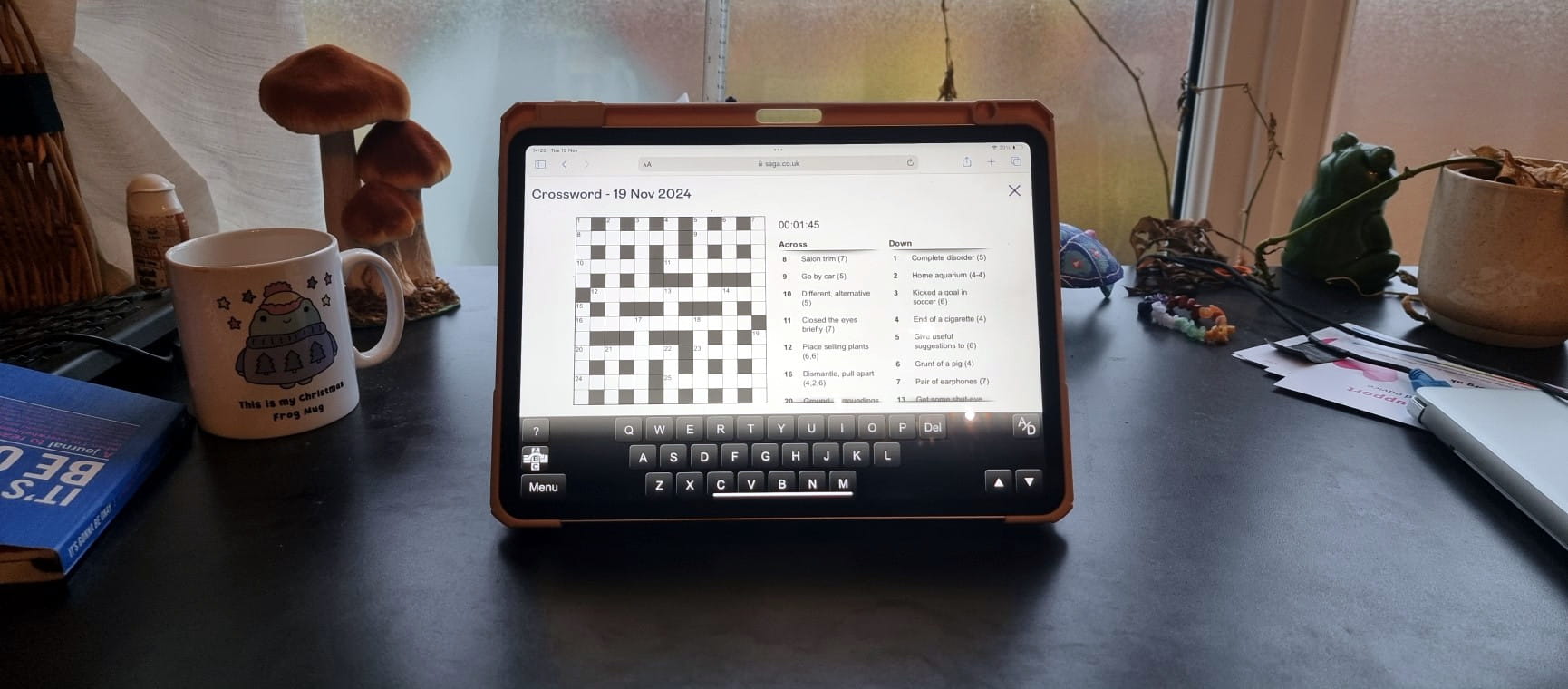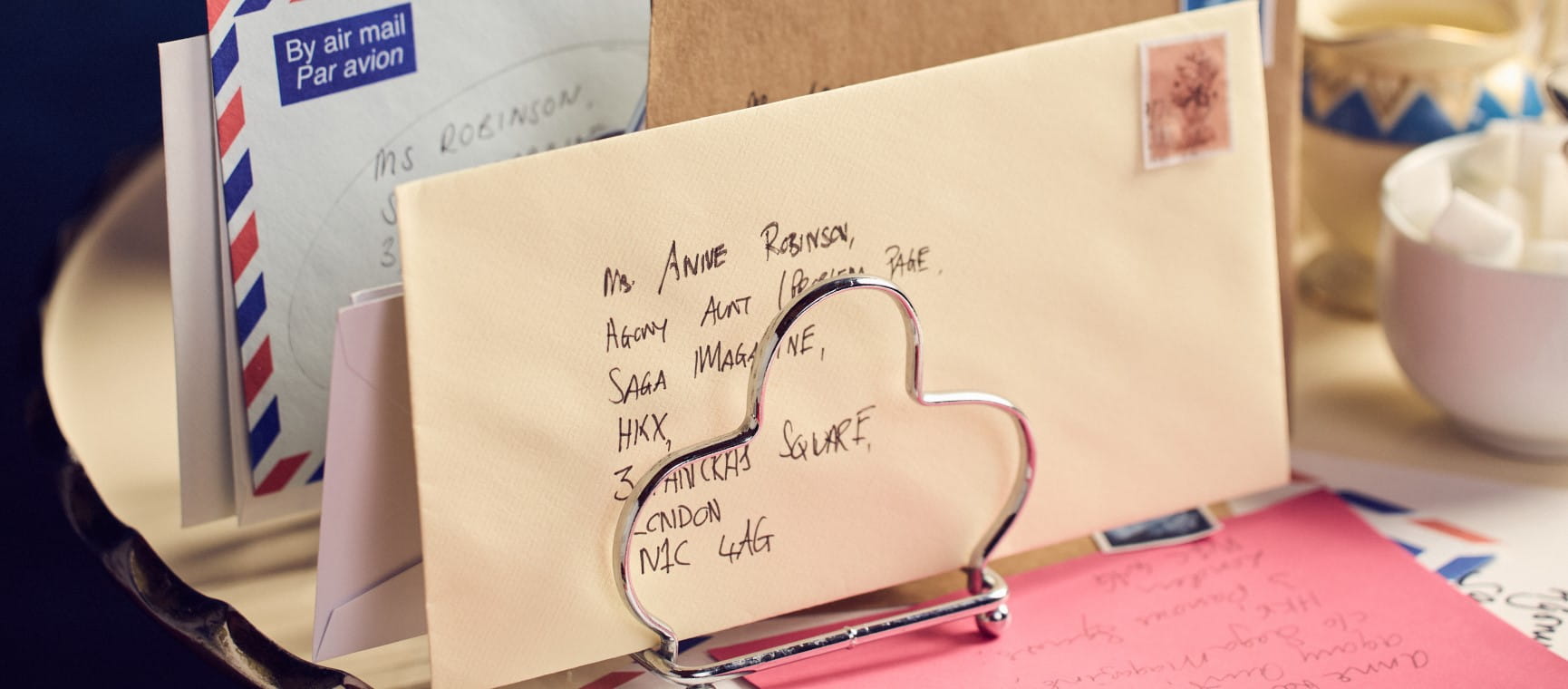Being run ragged at Christmas? How to say no without causing festive friction
Are you a Christmas people pleaser? Expert advice to setting boundaries so you can enjoy the festive season too.

Are you a Christmas people pleaser? Expert advice to setting boundaries so you can enjoy the festive season too.

With twinkling lights, the scent of cinnamon, and carols in the air, Christmas feels like a time when we naturally want to give and connect. But for many, the festive season also brings out our inner people-pleaser, leaving us overwhelmed and exhausted rather than joyfully rested. In fact, we can find ourselves saying ‘yes’ to every request, every invitation, every dish that needs cooking, and every last present that needs wrapping!
If that sounds familiar, you’re not alone. Christmas people-pleasing is a common trap that can be hard to climb out of – but with a few strategies, it’s possible to find a healthier, more fulfilling way of handling holiday pressures.
Let’s start with some tell-tale signs that you might be a Christmas people-pleaser and, if that’s the case, explore how to politely say ‘no’ without causing any upset.
If your December calendar is brimming with commitments, you never felt enthusiastic about, it’s a classic sign of holiday people-pleasing. Many of us say ‘yes’ out of a sense of obligation, fearing we’ll let others down by turning them down.
Whether it’s cooking a mountain of food or spending days decorating, if you feel exhausted or resentful, it’s a sign you might be prioritising others' holiday wishes over your own peace and well-being. People-pleasers tend to think of everyone else first – to their own detriment.
If you find yourself buying gifts you can’t really afford because you don’t want to disappoint anyone, this can be a sign that you’re people-pleasing financially. Overspending can easily take the joy out of Christmas and lead to stress that lingers well into the New Year.

Saying ‘yes’ to hosting, cooking, shopping, and wrapping for multiple people can lead to burnout. People-pleasers may commit to too many roles during the holidays, even when there are other family members who could help.
Many people-pleasers dread conflict or upsetting others, leading them to avoid any discussions that might involve the word ‘no.’ This can mean they go along with plans they’re uncomfortable with or take on more responsibility than they can handle.
For a people-pleaser, the thought of saying ‘no’ or asking for help can trigger guilt. This feeling can lead you to take on even more than you can manage in order to avoid disappointing others.
At Christmas, many of us feel an extra pressure to make others happy. This often stems from a fear of causing disappointment or feeling as though we’re falling short in our role as a friend, parent, or grandparent.
But saying ‘yes’ to everything – even when we’d rather not – doesn’t guarantee a peaceful holiday. In fact, it often has the opposite effect, making us feel overwhelmed, resentful, or drained.
When you stretch yourself too thin, you’re not only risking your own health and happiness, but you might also end up not enjoying the time you do spend with loved ones. In the long run, a little gentle boundary-setting can be far more beneficial for you and everyone around you.

And it’s not just you who benefits. By prioritising rest and establishing boundaries, you’re setting a positive example for friends and family. If you show that it’s okay to respect your limits, they may feel more empowered to do the same for themselves.
Ultimately, you want your loved ones to enjoy a balanced Christmas too, rather than becoming over-stretched and stressed. When they see you taking care of yourself, it gives them permission to do the same. Saying ‘no’ in a kind but firm way can be a gift you give to those around you, especially the ones you’d least want to see overworked or feeling pressured.
The art of saying ‘no’ during Christmas requires a mix of tact, kindness, and honesty. Here’s how to do it gracefully:
Before December arrives, take some time to think about what you want from the season. What kind of celebrations would make it truly meaningful? Set clear boundaries on your time, energy, and finances, and keep these in mind when requests come in. Knowing your limits makes it easier to decline without feeling guilty.
If you know you’ll need to say ‘no’ to certain invitations or requests, try to let others know as soon as possible. Be honest and direct but gentle. Saying something like, “I’d love to help with the dinner, but this year I’ll need to take a step back to avoid overextending myself,” can help avoid misunderstandings.
Avoid making others feel rejected by keeping your response positive. For example, you could say, “I won’t be able to host this year, but I’m looking forward to catching up over the phone or a quiet coffee.”
This way, you’re emphasising that it’s the commitment, not the person, you’re declining.

If it feels appropriate, suggest a compromise. If someone asks you to host a large family meal and you’d rather not, offer to help them prepare by bringing a few dishes instead. Or, if you can’t manage a lengthy visit, suggest a shorter outing that still allows you to spend time together without exhausting yourself.
Often, we overestimate how disappointed others will be when we say ‘no.’ The truth is, most people are more understanding than we give them credit for. A simple, “I won’t be able to join this time, but I hope it’s wonderful,” shows that you value the invitation without feeling obliged to accept it.
You don’t need to justify every ‘no’ with a detailed reason. A simple explanation is often more than enough. For example, saying, “I’m keeping things low-key this year” or “I’m trying to prioritise a bit of rest” lets others know where you stand without giving them a chance to argue or try to change your mind.
Remind yourself that Christmas is also about nurturing yourself. By taking the time to rest, relax, and enjoy the parts of Christmas that matter most to you, you’ll be more present and happier when you do join others. Self-care isn’t selfish; it’s a gift that benefits everyone.
Here are some practical ways to decline invitations or requests politely:
The party invite: “Thank you so much for inviting me! I won’t be able to make it this year, but I’ll be thinking of you and look forward to hearing all about it.”
The hosting request: “I’m focusing on a smaller, quieter Christmas this year, so I won’t be able to host, but I’d love to join in another way if possible.”
The financial request: “This year, I’m focusing on giving gifts within a set budget. I hope that works for everyone, as it helps me keep things relaxed.”
The time commitment: “I’d love to see you all, but I’m trying to be careful with my time, so I’ll be keeping things simple this season.”
Saying ‘no’ might feel challenging at first, especially if you’re used to putting everyone else’s needs before your own. But remember, a happier, more relaxed you is the best gift you can give to your loved ones. By setting boundaries kindly and prioritising what truly matters, you can help create a Christmas season that feels rewarding and joyful for everyone – including you.
And remember, by setting an example for your family and friends, you’re not only preserving your peace but also encouraging them to look after theirs. So, take a deep breath, remember these tips, and give yourself permission to say ‘no’ without guilt. After all, Christmas should be a time of peace and happiness for you as well as everyone else.
Find out more about Tina Wright on her website.

The ultimate guide to Saga Puzzles, full of technical tips, tricks and hints.

With the start of the new financial year on 6 April, our money expert explains the changes to your pension, benefits and taxes.





